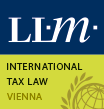Raphael Holzinger
Dr. Raphael Holzinger has studied business administration (BSc and MSc) as well as Business Law (LL.B. and LL.M.) at Vienna University of Economics and Business. Besides that, he also received an LL.M. in Tax Law and Accounting from University of Vienna. Moreover, he holds a PhD in Business Law from Vienna University of Economics and Business. From an academic perspective he is a post-doctoral research and teaching fellow at the Institute for Austrian and International Tax Law at Vienna University of Economics and Business and constantly conducts research in the areas of transfer pricing, business tax law and international tax law and is a frequent speaker on those topics in professional and academic courses, workshops and conferences. He also frequently publishes articles in national as well as international journals and books. From a professional perspective he is a Certified Tax Advisor as well as a Certified Transfer Pricing Manager and works for Deloitte Vienna, Austria. His practical focus lies on consultancy in the areas of transfer pricing, business tax law and international tax law. In that regard Dr. Holzinger manages client engagements, designs, prepares and defends tax and transfer pricing settings, advices in cross-border tax planning situations, supports clients with different documentation tasks and has extensive experience in the area of tax and transfer pricing dispute prevention and resolution (tax and transfer pricing audits, unilateral and bilateral APAs as well as MAPs).Courses:
Drafting Legal Opinions
In practice, it is not only important to acquire in-depth knowledge about tax law and to seek for the most convincing legal arguments. It is also important to convince clients, tax administrations, courts or readers of those arguments by writing clearly, concisely and in a structured manner. Thus, the lecture aims to provide a better understanding of how to structure legal arguments and draft legal opinions. The course will begin with questions and discussions about different issues regarding legal opinions, such as the differences between legal opinions and academic papers, the expectations of the potential audiences, and the different styles of structure and writing. Afterwards, practical case studies in tax treaty law will be analyzed by teams of students, who will then write legal opinions from different perspectives (taxpayer, tax administration, court). By sharing and discussing the different experiences in class, the lecture intends to develop an understanding of how your writing skills may turn a good legal opinion into a great legal opinion.
Back to list

